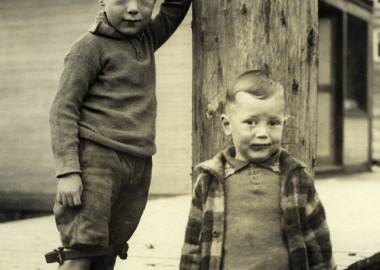At Echo, we tend to think of what we do as quite unique. The trendiness of “storytelling” in marketing and social media really belies how few companies really do what we do. When people ask us who else produces books and histories for companies, we can count the number of North American companies on our two hands.
But we, and our competitors, weren’t the first to recognize how books boost sales and work as effective promotional tools. In the 1960s, books as promotional tools were all the rage. A 1963 Wall Street Journal article reports “More Firms Subsidize Books About Selves, Hope to Improve Image:Pepsi-Cola Buys 10,000 Copies of Its History; Airline Backs a Jet Story for Youngsters.”
At the time, McGraw-Hill was in the business, and defended corporate storytelling: “Our company books are not ‘vanity’ jobs. They can stand on their own two feet as important contributions to Americana,” said the publisher’s executive director at the time. “Large companies are learning that it does more harm than good to come out with a book that nobody respects…”
Two years later, the magazine Advertising & Sales Promotion published a feature on books as marketing tools. The article’s author, Wilbur Cross, the director and head of Books for Business, gave company marketing pros some answers to the questions “How do you find the right writer? Do you need researchers and editors, too? How much will the book cost? How long will it take?”
Cross’ answers, verbatim, are below and we can’t believe how these tips have stood the test of time!
—What about the writer? … You do not necessarily need a “big-name writer,” but you do need one who is professional and competent; who is able to work as well with staff members and others as, say, a good copywriter is conditioned to cooperating with account executives and clients; and who understands the audience you want to reach. He must be able to grasp the subject, but he need not necessarily be a specialist in it. Sometimes it is better to use a writer who is slightly removed from the subject field, and who can look at the assignment objectively.
—How about research and editing? … Many would-be sponsors of company books make the mistake of deciding that they do not need editorial research help because “we have all the research we need — files and files of material.” The fact of the matter is that the more material you think you have, the more you may need researchers to tackle the process of weeding and organizing data and taking a fresh look at the subject.
As for an editor, he is a necessity, not a luxury. No competent publisher would try to produce a non-fiction book for today’s market without the services of a highly qualified editor. An editor is, if anything, even more essential to a company-sponsored book, where a delicate balance must be maintained between creative output and the demands of the client. A good writer needs a certain freedom and independence to perform his function. Since it is equally important that the sponsor end up with the type of book he needs, an experienced editor is often the only one who can effectively reconcile the needs of all the participants.
—How much will it cost? … All too often, this question is asked by a would-be sponsor before he has really decided what the length, content and format of the book should be. While it is almost impossible to answer the question without a careful analysis of the factors involved, there are some rules of thumb that may be helpful. A combination of elements determines the exact cost — such things as the stature of the writer, the amount of research required, the actual length of the text, the degree of difficulty of the writing. The process is not simply one of finding a good writer, any more than locating an experienced chemist would be the answer to the over-all project of developing and marketing a new product in the pharmaceutical field. It all takes teamwork and planning.






